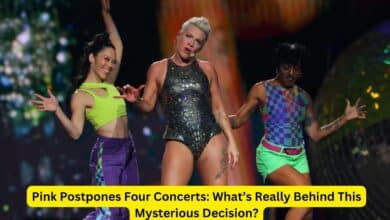100 Best TV Episodes in Television History

100 Best TV Episodes Most Memorable Moments in Television History, Television has always been a reflection of our culture, our fears, and our aspirations. Over the decades, certain episodes stand out as masterpieces, capturing hearts, minds, and ratings. But what makes an episode truly unforgettable? Is it the plot twists, the iconic lines, or the emotional depth? In this article, we’ll explore the 100 Best TV Episodes ever made, drawing inspiration from Rolling Stone’s curated list and diving into what sets these episodes apart. We’ll explore their impact on audiences, why they remain etched in our memories, and how they continue to shape modern television.
What Defines the Best TV Episodes?
Television today is an overwhelming landscape of genres, formats, and styles. From sitcoms to dramas, science fiction to reality TV, there’s something for everyone. But identifying the 100 Best TV Episodes involves more than just popularity or ratings. These episodes have to offer a mix of brilliant storytelling, strong character development, cultural relevance, and that “it” factor—something that leaves you thinking long after the credits roll.
The Power of Storytelling
The art of storytelling is a major reason why certain episodes stand the test of time. Think about Breaking Bad’s “Ozymandias” or The Sopranos’ “Pine Barrens.” These episodes are perfect examples of shows that use tension, surprise, and emotional stakes to captivate audiences. But it’s not just dramas that make the list. Comedic gems like The Office’s “Dinner Party” or Friends’ “The One Where Everybody Finds Out” are celebrated for their sharp writing and hilarious scenarios.
The ability to balance humor with emotional depth is what makes comedic episodes stand out in the 100 Best TV Episodes. When we think of classic comedies, we often think of laughter, but the best episodes also weave in moments of heart and truth, showing us that comedy is much more than just punchlines.
Challenging Common Beliefs
One of the more intriguing aspects of compiling a list of the 100 Best TV Episodes is realizing how many episodes defy traditional TV storytelling. Shows like Black Mirror with episodes like “San Junipero” or The Twilight Zone’s “Nightmare at 20,000 Feet” play with structure, genre, and viewer expectations. These episodes challenge what we think we know about television and push the boundaries of the medium.
Culturally, these episodes often reflect our deepest anxieties, tapping into societal fears around technology, authority, or identity. The episodes that challenge common beliefs often become the most memorable because they take risks that pay off. They make us question the status quo and allow us to view the world through a new lens.
The Evolution of TV: From Networks to Streaming
Over the years, the way we consume television has changed dramatically. Gone are the days when we had to wait an entire week for the next episode. With the rise of streaming platforms like Netflix, Hulu, and Amazon Prime, we can now binge-watch entire seasons in one sitting. This shift has also impacted the format of television episodes. Shows like Stranger Things and The Crown have benefited from this model, delivering episodes that feel more like mini-movies with larger budgets and more cinematic production values.
These new-age classics are making their way into the 100 Best TV Episodes conversation because of their ability to tell complex stories in a more immersive way. Take Stranger Things’ “The Gate” or The Crown’s “Aberfan,” which are perfect examples of episodes that not only entertain but also offer deep, emotional engagement.
Iconic Moments That Shaped Pop Culture
One of the reasons why certain episodes make the cut for the 100 Best TV Episodes is their impact on pop culture. These episodes become watercooler moments, sparking discussions that last long after they air. Think about the impact of Game of Thrones’ “The Red Wedding.” This episode didn’t just shock audiences; it became a cultural phenomenon. Spoilers were impossible to avoid, and the episode redefined what audiences thought was possible in television.
Other moments, like Ross shouting “We were on a break!” in Friends or Walter White’s descent into full Heisenberg mode in Breaking Bad, became part of our cultural lexicon. These are the kinds of episodes that leave a mark not just on fans of the show but on television history as a whole.
Why Some Episodes Resonate More Than Others
If we look deeper into the 100 Best TV Episodes, we’ll find that the ones that resonate the most often tap into universal themes. Whether it’s love, loss, betrayal, or redemption, these episodes succeed because they make us feel something deeply personal. Consider The West Wing’s “Two Cathedrals,” where President Bartlet confronts his faith and his responsibility to the country. The emotional weight of that episode stems from the universal struggle of facing loss and maintaining hope.
Meanwhile, episodes like Buffy the Vampire Slayer’s “The Body” hit home due to their raw portrayal of grief. These episodes may not have the flashiest special effects or the most intricate plotlines, but their emotional truth is what makes them endure.
Are We in the Golden Age of Television?
Many argue that we’re living in the golden age of television, with shows like Breaking Bad, Mad Men, and The Wire paving the way for high-quality TV storytelling. But is that really the case? When we look at the 100 Best TV Episodes from the past few decades, it’s clear that groundbreaking television has always existed. Shows like The Twilight Zone, MASH*, and The X-Files have all delivered iconic episodes that hold up against anything released today.
So, while the current landscape offers a wealth of exceptional TV, it’s important to recognize that quality has been a hallmark of the medium for decades. The evolution of storytelling, however, has undoubtedly given creators more tools to tell richer, more complex stories.
What’s Next for TV?
As we move forward, it’s fascinating to think about what will constitute the next era of “best episodes.” With the rise of artificial intelligence, virtual reality, and interactive storytelling, the possibilities for what can be achieved in a single episode are endless. Shows like Black Mirror: Bandersnatch have already experimented with interactive storytelling, and it will be exciting to see how far the medium can be pushed.
Will the future of television still deliver episodes that rank among the 100 Best TV Episodes? Or will the episodic format evolve into something completely new, something we can’t even imagine yet? One thing is certain: television will continue to reflect our society, challenge our beliefs, and offer us new perspectives on the world.
Conclusion: What Makes an Episode Truly Great?
Compiling a list of the 100 Best TV Episodes is no easy task. It involves evaluating episodes across decades, genres, and styles to identify those rare moments of perfection. But what stands out is the way these episodes tap into something universal—whether it’s laughter, suspense, or profound emotional insight. They are the episodes that make us feel deeply, that spark conversations, and that stand the test of time.
So, what do you think? What episodes stand out to you as the best of all time? Is there an episode you believe should have made the list? Share your thoughts in the comments below! Let’s continue the conversation on what truly makes a TV episode unforgettable.





One Comment